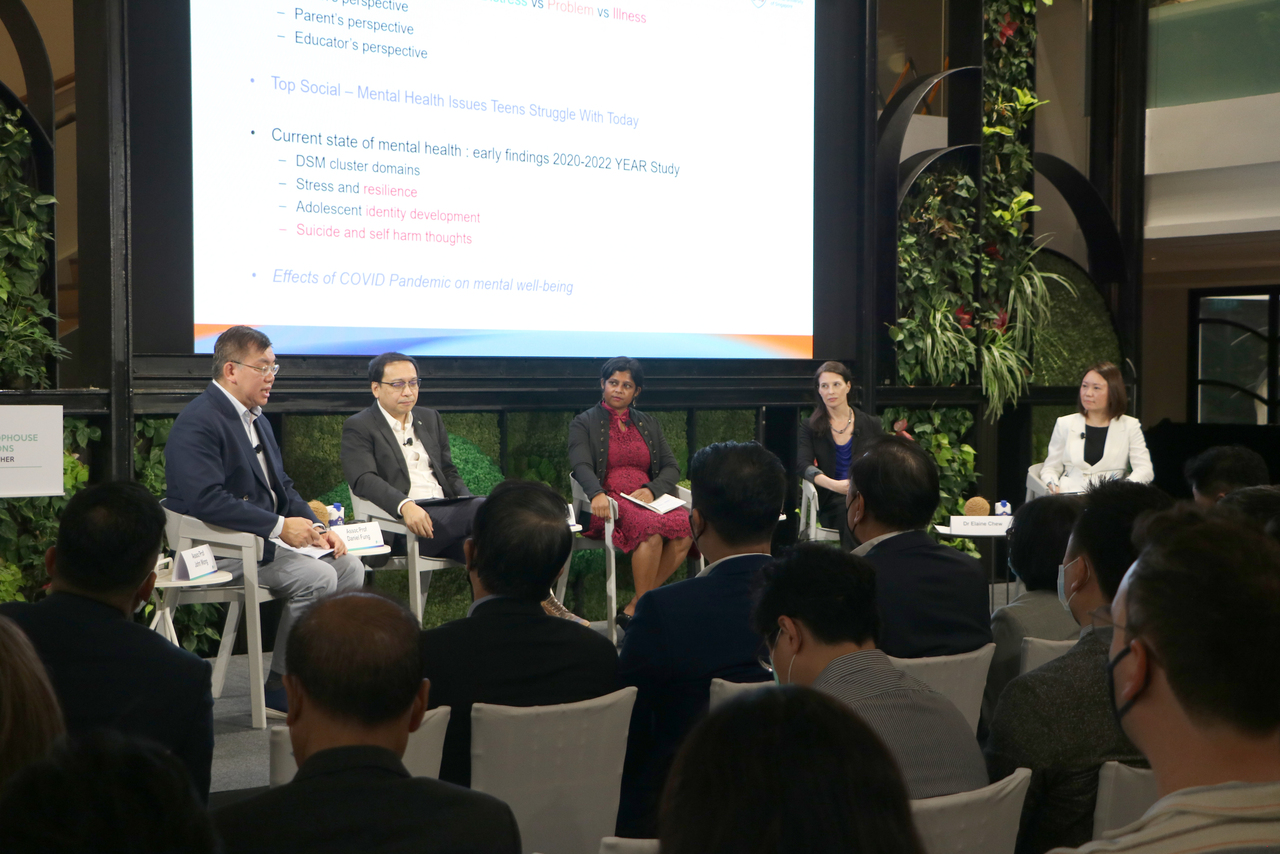Call for public to help develop mental health programme for counsellors, social service agencies
Sign up now: Get ST's newsletters delivered to your inbox

Panellists highlighted the need to go beyond relying on medical services to tackle youth mental health in Singapore.
PHOTO: BRIDGES M&C
Follow topic:
SINGAPORE - School counsellors and social service agencies are poised to get more training to treat young people with mild mental health issues.
Members of the public can now help KK Women's and Children's Hospital develop a new programme for those aged 10 to 18.
This follows an open call from the hospital for volunteers ranging from educators to grandparents at social impact hub Temasek Shophouse on Friday (May 20).
This comes as more children and adolescents have been seeking help for mental health difficulties since the Covid-19 pandemic hit, said Dr Vicknesan Marimuttu, the head and senior consultant at the hospital's Child and Adolescent Mental Wellness Service.
He said: "The main thrust (of the programme) is to identify people early enough, such that we don't wait for their symptoms to get too severe."
Through online or in-person focus group discussions, volunteers can contribute to an intervention framework that the hospital will use to train community workers and possibly peer supporters in the future, said Dr Marimuttu, who moderated one of the panel discussions on youth mental health at the Temasek Shophouse.
Attended by more than 600 participants and Minister of Manpower Tan See Leng, the event, which was streamed online, aims to foster a discourse surrounding mental health among youth, and explore ways to improve support and access for communities at risk.
In his speech, Dr Tan said the ministry is looking into committing more significant resources into ensuring that the workplace is a safe and welcoming environment.
On Friday, panellists highlighted the need to go beyond relying on medical services to tackle youth mental health in Singapore.
Dr Priyanka Rajendram, assistant director of Integrated Health Promotion at the Health Ministry's Office for Healthcare Transformation, pointed out that stigma, which can come from oneself or from society, is systemic.
She said: "Perhaps instead of seeking to destigmatise an issue, which implies the action of undoing something that might be wrong, which is always hard, maybe we should think about how we can seek to normalise conversations about mental health, which implies an action of creation that is more hopeful and more positive."
Associate Professor John Wong, senior consultant at the National University Hospital's Department of Psychological Medicine, noted that there has been an increasing number of youth, especially those from secondary school, who have been seeking help from professional services.
"But a lot of times, it is challenging that their parents, who may not have the equivalent level of mental health literacy, are very resistant or very hesitant," he said, calling for mental health education for the population at large.
Highlighting the importance of parents and schools, Minister of State for Social and Family Development and Education Sun Xueling said education and the well-being of children depend on the relationship they have with their parents, teachers and peers, which the Education Ministry has been trying to support.
She said: "In terms of the community, we need to make sure that there are sufficient layers of support and it's not the case whereby when young people have mental health concerns, they feel that there is only one help channel, which is the Institute of Mental Health."
This is one area that an inter-agency task force set up last year to tackle mental health and mental well-being has been looking into, she said.
Addressing the struggles of youth also has to be tailored to their needs, panellists said.
Said ambassador for the Beyond the Label movement, which addresses the stigma of mental health conditions, Ms Tasneem Abdul Majeed: "Not everyone is comfortable with sharing their experiences through a verbal medium or sharing with someone at all, particularly in Asian society, where people are more reserved and not comfortable with discussing their emotions openly.
"So moving forward, we could shift towards the provision of safe spaces for youth who prefer to handle their mental distress independently or are not willing to share their distress with others."

